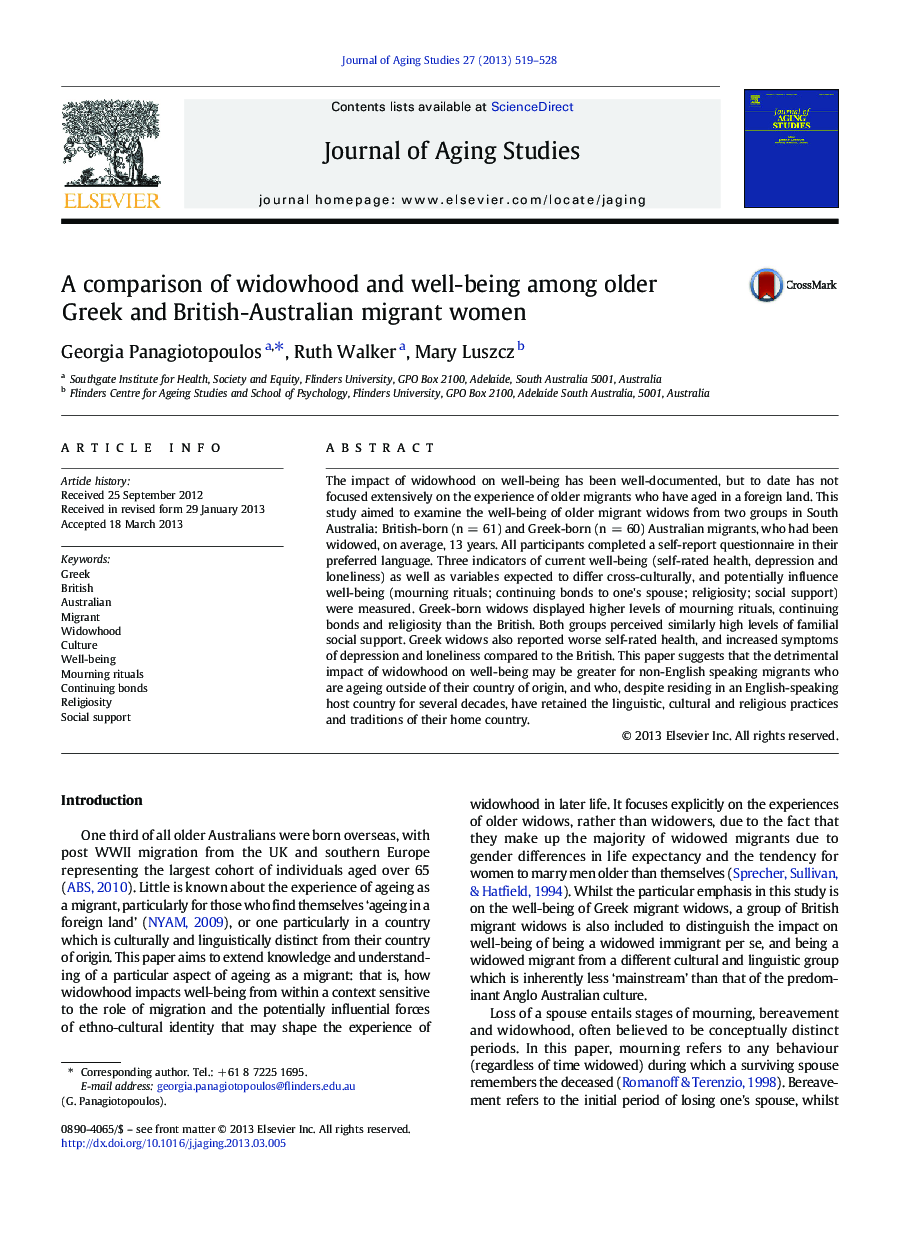| Article ID | Journal | Published Year | Pages | File Type |
|---|---|---|---|---|
| 10513191 | Journal of Aging Studies | 2013 | 10 Pages |
Abstract
The impact of widowhood on well-being has been well-documented, but to date has not focused extensively on the experience of older migrants who have aged in a foreign land. This study aimed to examine the well-being of older migrant widows from two groups in South Australia: British-born (n = 61) and Greek-born (n = 60) Australian migrants, who had been widowed, on average, 13 years. All participants completed a self-report questionnaire in their preferred language. Three indicators of current well-being (self-rated health, depression and loneliness) as well as variables expected to differ cross-culturally, and potentially influence well-being (mourning rituals; continuing bonds to one's spouse; religiosity; social support) were measured. Greek-born widows displayed higher levels of mourning rituals, continuing bonds and religiosity than the British. Both groups perceived similarly high levels of familial social support. Greek widows also reported worse self-rated health, and increased symptoms of depression and loneliness compared to the British. This paper suggests that the detrimental impact of widowhood on well-being may be greater for non-English speaking migrants who are ageing outside of their country of origin, and who, despite residing in an English-speaking host country for several decades, have retained the linguistic, cultural and religious practices and traditions of their home country.
Keywords
Related Topics
Health Sciences
Medicine and Dentistry
Geriatrics and Gerontology
Authors
Georgia Panagiotopoulos, Ruth Walker, Mary Luszcz,
